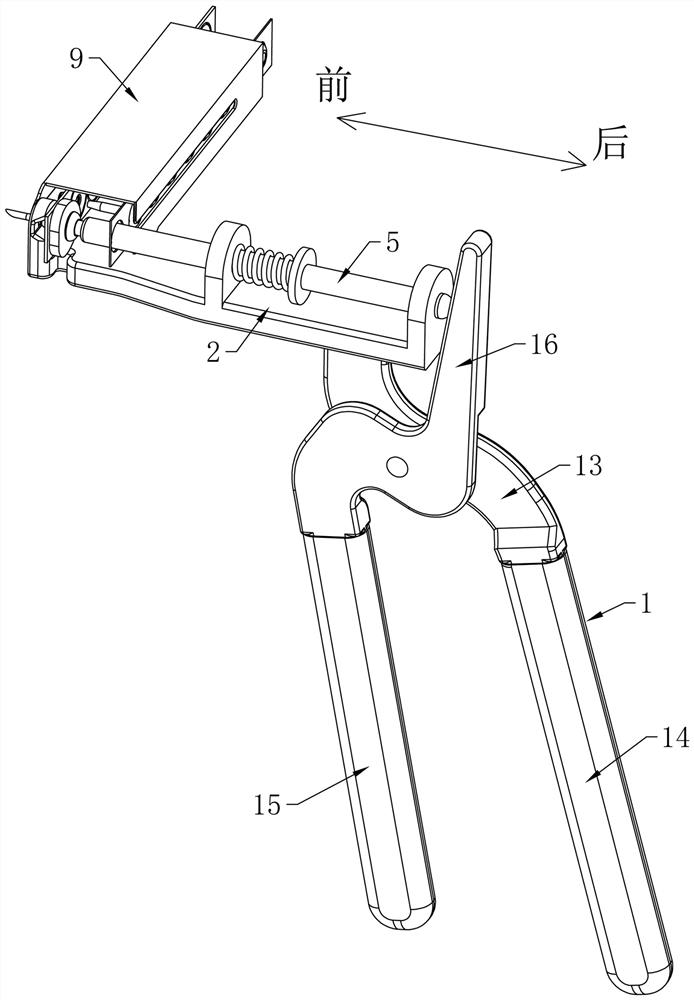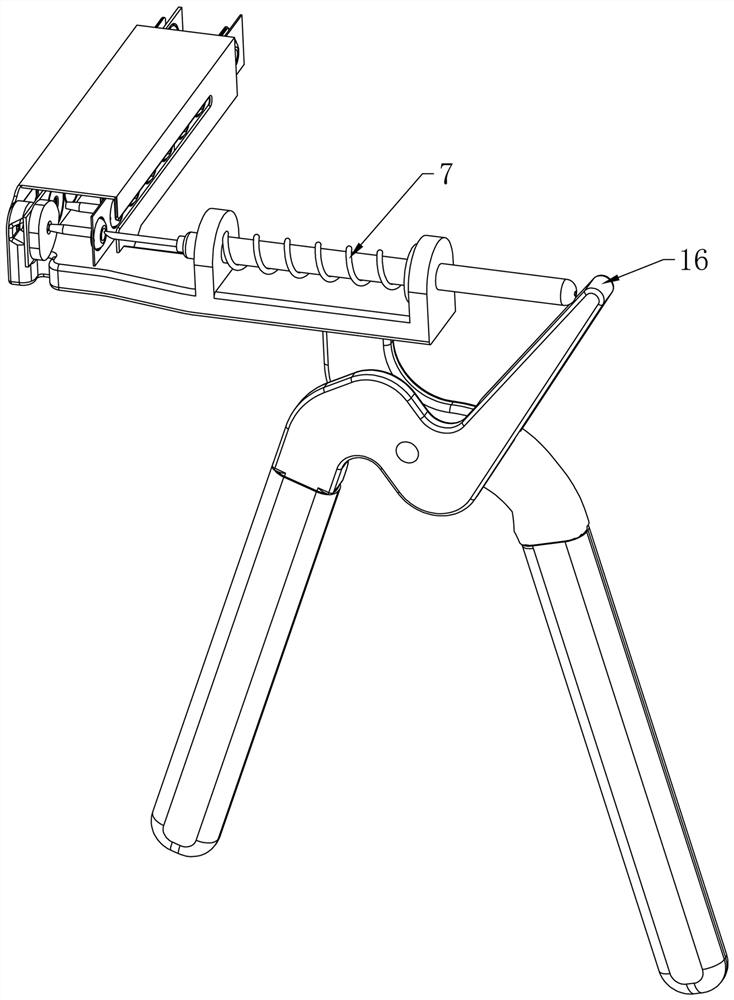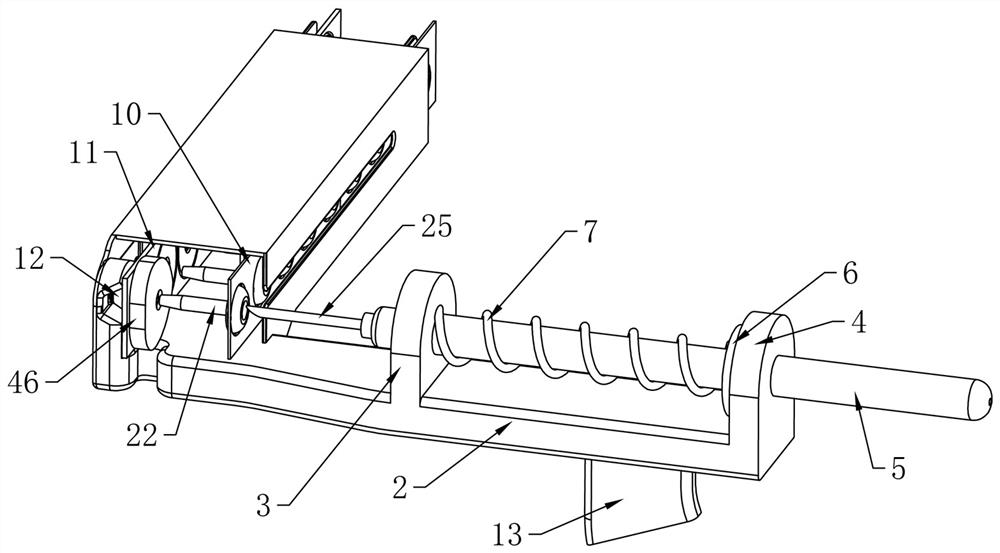Minimally-invasive gap-controllable mouse chip ear tag and loading device thereof
A loading device and ear tag technology, applied in animal husbandry and other directions, can solve the problems of inability to precisely control the force, troublesome operation steps, and enhanced tumor formation, saving time and manpower, avoiding secondary trauma, and realizing the effect of intelligence
- Summary
- Abstract
- Description
- Claims
- Application Information
AI Technical Summary
Problems solved by technology
Method used
Image
Examples
Embodiment Construction
[0053] In order to enable those skilled in the art to better understand the solutions of the present invention, the following will clearly and completely describe the technical solutions in the embodiments of the present invention in conjunction with the drawings in the embodiments of the present invention. Obviously, the described embodiments are only It is an embodiment of a part of the present invention, but not all embodiments. Based on the embodiments of the present invention, all other embodiments obtained by persons of ordinary skill in the art without creative efforts shall fall within the protection scope of the present invention.
[0054] Such as Figures 1 to 26 As shown, a mouse chip ear tag and its loading device with minimally invasive and controllable gaps in the embodiment of the present invention include: punching forceps 1, bracket 2, guide boss I3, guide boss II4, top Shaft 5, limit plate 6, spring I7, thimble, stabilizing block 8, ear tag housing 9, card p...
PUM
 Login to View More
Login to View More Abstract
Description
Claims
Application Information
 Login to View More
Login to View More - R&D
- Intellectual Property
- Life Sciences
- Materials
- Tech Scout
- Unparalleled Data Quality
- Higher Quality Content
- 60% Fewer Hallucinations
Browse by: Latest US Patents, China's latest patents, Technical Efficacy Thesaurus, Application Domain, Technology Topic, Popular Technical Reports.
© 2025 PatSnap. All rights reserved.Legal|Privacy policy|Modern Slavery Act Transparency Statement|Sitemap|About US| Contact US: help@patsnap.com



